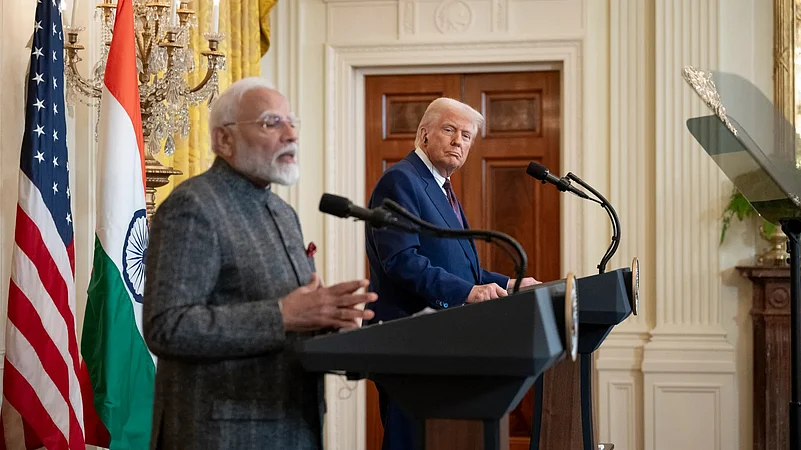
Trump said India offered to slash tariffs on U.S. goods.
Remarks follow his 50% tariffs on Indian imports, straining ties.
Modi, Xi, and Putin projected solidarity at China’s SCO summit.
Xi promoted Global South unity, challenging U.S.-led economic order.
U.S President Donald Trump said on Monday that India has offered to slash its tariffs on U.S. goods to nothing. His comments come amid trade pressure from Washington and Prime Minister Narendra Modi making public shows of solidarity with Chinese and Russian leaders.
Referring to the U.S. relationship with India as ‘one sided’, Trump wrote on his Truth Social platform, "They have now offered to cut their Tariffs to nothing, but it’s getting late. They should have done so years ago."
This comes soon after the implementation of 50% tariffs on Indian goods which has raised question on the future relationship between the two countries. The Indian Embassy in Washington has not responded immediately to Trump's comments.
Last week, PM Modi visited China for a summit of more than 20 leaders of non-Western countries of the Shanghai Cooperation Organisation, an initiative backed by China that has given renewed impetus by Trump's global tariff offensive.
During the summit, Chinese President Xi Jinping highlighted his vision for a new global security and economic order that prioritizes the "Global South," in a direct challenge to the U.S.
In recent years, the U.S.-India relationship has strengthened, including during Trump's first term, mainly in the light of shared concerns about China's growing power. However, Trump threatened the tariffs on India after it refused to stop buying Russian oil in defiance of his efforts to end Moscow's war in Ukraine.
On the other hand, Putin and Modi conveyed solidarity in China, as the two leaders was seen holding hands and walking jovially toward Xi before the summit opened. Beijing’s summit is a representative of mending ties with New Delhi as the Indian Prime Minister was seen visiting China for the first time in seven years. On Sunday, Xi agreed that their countries are development partners, not rivals, and discussed ways to improve trade.
The U.S. State Department and White House did not immediately respond to requests for comment on the meetings in China.






























